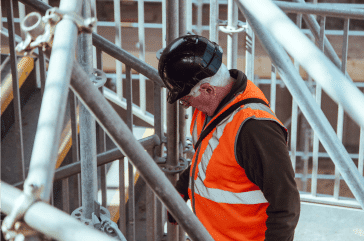Surety bonds are a crucial requirement for contractors in the construction industry. A surety bond insurance is a three-party agreement ensuring contractors fulfil their contractual obligations to a project owner. The three parties involved in a surety bond are the principal (contractor), the obligee (the project owner), and the surety (the bonding company).
Surety bonds protect project owners by guaranteeing that the contractor will complete the project as per the agreed-upon terms. However, contractors often make errors when applying for surety bonds, which can lead to the rejection of their applications. In this article, we will discuss the common mistakes contractors make when applying for surety bonds.
1. Incomplete Applications
One of the most common errors contractors make when applying for surety bonds is submitting incomplete applications. Surety bond applications require detailed information about the contractor’s financial status, experience, and reputation.
Contractors often rush through the application process, failing to provide all the necessary information. This leads to delays in the approval process or even outright rejection of the application. To avoid this mistake, contractors should take the time to review the application carefully and ensure that they have provided all the necessary information.
2. Inaccurate Financial Information
Another common mistake that contractors make when applying for surety bonds is providing inaccurate financial information. Surety bonding companies rely heavily on a contractor’s financial information to determine whether they are eligible for a bond.
Contractors often overestimate their financial standing, leading to the rejection of their applications. To avoid this mistake, contractors should be honest about their financial situation and provide accurate information.
3. Lack of Experience
Contractors with little or no experience in the construction industry often struggle to get surety bonds. Surety bonding companies require contractors to have a certain level of expertise to qualify for a bond.
Professionals who lack experience in the industry are considered high-risk and are therefore rejected. To avoid this mistake, contractors should gain experience in the industry before applying for a surety bond.
4. Poor Credit History
A contractor’s credit history is crucial in determining their eligibility for a surety bond. Contractors with poor credit histories are considered high-risk and are therefore rejected.
A contractor’s credit history reflects their ability to manage their finances and fulfil their obligations. To avoid this mistake, contractors should ensure a good credit history before applying for a surety bond.
5. Not Providing Adequate References
Companies that issue surety bonds need contractors to give them names of past clients to assess their trustworthiness. If a contractor cannot provide enough references or the references do not speak highly of their work, they are considered risky and are not accepted.
6. Failure to Understand the Bonding Process
Contractors who do not understand the bonding process often make mistakes when applying for surety bonds. The bonding process can be complex, and contractors who do not understand it may provide inaccurate information or fail to provide all the necessary information. To avoid this mistake, contractors should take the time to understand the bonding process and ask questions if they are unsure about any aspect of it.
Conclusion
Surety bonds are crucial for contractors in the construction industry. Contractors who make errors when applying for surety bonds risk having their applications rejected, which can have severe consequences for their businesses. By avoiding the common mistakes discussed in this article, contractors can increase their chances of getting approved for surety bonds.
Contractors should take the time to review their applications carefully, provide accurate financial information, gain experience in the industry, maintain a good credit history, provide strong references, and understand the bonding process. By doing so, they can ensure they are eligible for surety bonds and continue growing their businesses.
Approved Casualty & Surety helps brokers deliver a wide range of surety bond insurance and other related products. Our team of wholesale intermediaries and MGAs is dedicated to providing personalised service to our clients and helping them navigate the complex world of surety bonding. Contact us today to learn more about how we can help you and your clients.







